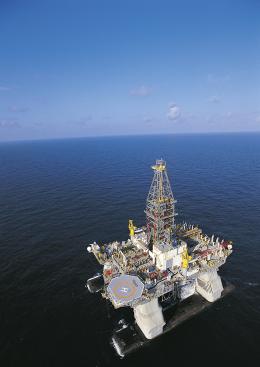Platform Owner Involved in Previous Offshore Accidents Regulators Say
Houston-based Mariner Energy paid $55,000 in fines this summer after inspectors found safety violations. Four of the company’s accidents resulted in worker injuries, records show.
By Julie Cart and P.J. Huffstutter, Los Angeles Times
In one of those accidents aboard the oil and gas platform known as Vermilion Block 380, which seriously injured a worker in 2008, federal inspectors highlighted “unsafe workmanlike operations,” according to federal Bureau of Ocean Energy Management, Regulation and Enforcement records.
This summer, the Houston-based Mariner paid $55,000 in fines stemming from inspections that turned up various safety violations. Four of Mariner’s accidents resulted in worker injuries; two of them involved fires, according to federal records.
Still, the company’s safety record does not rank it among the gulf’s worst operators, but underscores the inherent dangers of offshore energy prospecting and production: The tiniest spark can result in a catastrophic fire or explosion.
For example, a Mariner production platform caught fire in June 2009 after a methanol tank exploded during a welding operation. A fire on another Mariner platform broke out the year before during a routine cleaning operation.
The production platform involved in Thursday’s fire was set in about 340 feet of water about 102 miles off Louisiana. On average, it produced about 9 million cubic feet of natural gas, and 1,400 barrels of oil and condensate a day, according to the company.
Mariner Energy is considered to be a small- to mid-sized independent offshore exploration and production firm, but one that was growing rapidly in recent years and showed a lot of promise, said Bruce Bullock, director of the Maguire Energy Institute at Southern Methodist University.
“They’ve had a fair amount of success, particularly in the deep water in the gulf,” Bullock said.
That success came after Mariner clawed its way back from the brink of dissolution in the early 2000s, when former energy giant Enron owned 96% of the Houston-based firm. A group of private equity investors bought it out of the Enron bankruptcy in 2004.
Two years later, using a complicated transaction and bolstered by Gulf of Mexico assets acquired from rival Forest Oil Corp., Mariner went public.

.jpg)